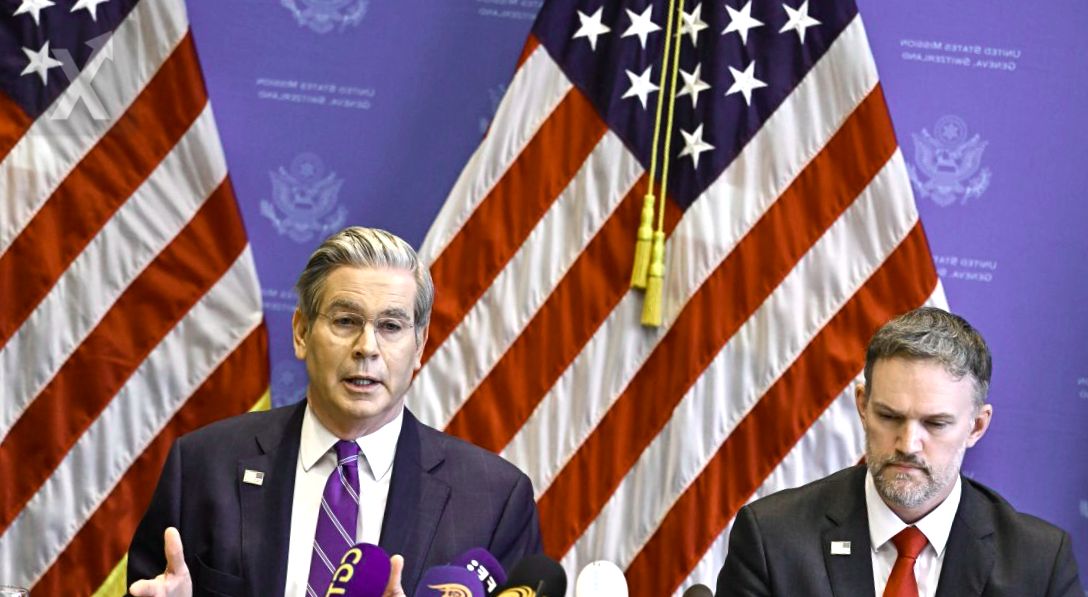Trade War Pause: A Breather Between the U.S. and China

The United States and China announced on Monday that a 90-day suspension of most of the tariffs imposed between the two countries will be implemented, marking a significant reduction in their trade war. This suspension will begin "no later than May 14", as expressed by the two major global powers in a joint statement following two days of negotiations in Geneva.
Both nations decided to temporarily lower their "reciprocal tariffs" by 115 percentage points during those 90 days, according to U.S. Treasury Secretary Scott Bessent and Trade Representative Jamieson Greer. This means that Chinese products entering the United States will face a tariff of 30%, while U.S. goods in China will see a tariff of 10%. Following the announcement, the Hong Kong Stock Exchange rose more than 3%, and the dollar appreciated against the yen and the euro. "We are seeking a more balanced trade relationship," said Bessent from Geneva, emphasizing that the recently imposed tariffs had practically established an "embargo" on trade between the two countries. The reduction of these tariffs responds to a "shared global interest," added the Chinese Ministry of Commerce, praising the "significant progress" in negotiations. This pause is the result of two days of discussions in Geneva between Bessent and Greer on the U.S. side and Chinese Vice Premier He Lifeng. The trade war between Beijing and Washington erupted when U.S. President Donald Trump implemented a series of tariffs in April that directly affected China, which in turn responded with retaliatory measures. Since the beginning of the year, tariffs imposed by the United States on China have reached 145%, with some products facing tariffs as high as 245%. In response, China established tariffs of 125% on U.S. goods, leading to a slowdown in bilateral trade between both economies. Bessent commented that the talks in Geneva were conducted with "great respect," and the outcome shows that "neither side wants an economic collapse." He Lifeng indicated there had been "significant progress" after the talks, which he described as "honest, deep, and substantial." According to their joint statement, both countries also agreed to "create a mechanism for ongoing dialogue on trade and economic relations." The Director-General of the World Trade Organization (WTO), Ngozi Okonjo-Iweala, noted that discussions between the two nations are "a positive and constructive step towards de-escalation." The negotiations were held at the luxurious residence of the Swiss Permanent Representative to the UN in Geneva. Trump stated that on the first day of talks, "great progress" was made. "It's a totally friendly, yet constructive, total restart," he expressed on his social media platform Truth Social. This dialogue was the highest-level meeting between the two countries since Trump returned to the White House, justifying his tariff offensive as an attempt to correct what he considers unfair practices and protect jobs in the United States. "The contact established in Switzerland is a significant step forward in addressing the issues," highlighted a comment from the official Chinese news agency Xinhua.
The Chinese Vice Premier entered the negotiations with confidence, as Chinese exports grew by 8.1% in April, surpassing expectations. Experts indicate that this performance is attributed to a redirection of trade toward Southeast Asia in response to U.S. tariffs. For Gary Hufbauer of the Peterson Institute for International Economics (PIIE), some more moderate members of the Trump administration, such as Bessent and Secretary of Commerce Howard Lutnick, are realizing that "China is in a better position to withstand this trade war than the United States."
This temporary agreement between the two largest economies in the world represents not only a reduction of tensions but also an opportunity to restore confidence among markets. In the financial context, stability in these trade relations could favor both consumers and businesses, opening doors to smoother and more beneficial trade in the near future. Hopefully, this pause is the beginning of a path toward stronger and more sustainable collaboration.





